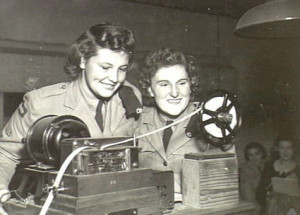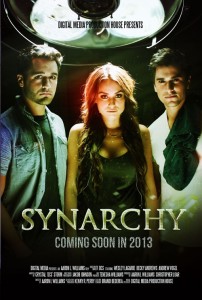 First, as an editor, it makes me a little squirmy to write blog posts about “how” to write. Beyond basic grammar and clarity, the rules of writing, especially in fiction, are a kind of flexible armature and differ according to the author, the genre, and the situation. However, I’ve been seeing something in fiction lately that makes me want to slam my head against the keyboard: telling readers in quite unsubtle terms that the plot is about to take a shocking turn. The device is commonly called telegraphing. Continue reading “Telegraphing Versus Foreshadowing”
First, as an editor, it makes me a little squirmy to write blog posts about “how” to write. Beyond basic grammar and clarity, the rules of writing, especially in fiction, are a kind of flexible armature and differ according to the author, the genre, and the situation. However, I’ve been seeing something in fiction lately that makes me want to slam my head against the keyboard: telling readers in quite unsubtle terms that the plot is about to take a shocking turn. The device is commonly called telegraphing. Continue reading “Telegraphing Versus Foreshadowing”
Tag: fiction writing
Hung Up on Rules?
 Guest post
Guest post
by Jacqueline Hopkins-Walton
Do you get hung up on rules about writing? Rules that everyone in the writing industry is telling you that you must follow in order to get a book written and even published?
Lin Robinson wrote five blog posts about breaking the rules (Part 1, Part 2, Part 3, Part 4, and Part 5). I pondered if his list is why I am struggling with my writing lately…or for the past fifteen years.
Now if you did a google search on rules of good fiction writing, you get a long list of rules. From seven rules to ten rules to sixteen rules; from rules on short fiction writing to writing fiction to writing historical fiction, novel, poetry, and creative writing, and I have a feeling the list goes on and on and on. I didn’t click on Google’s next page of lists, I don’t have time to read about more rules since the ones I hear about now or have known about years ago are keeping me from writing and completing the next book. Continue reading “Hung Up on Rules?”
Make Me Believe the Unbelievable
 Guest post
Guest post
by Walt Morton
There is a pact between every author and every reader. The pact goes like this: “I, the author, will tell you a story with characters and events so interesting and true you’ll enjoy every word to the very end.” But sometimes, good intentions fail and the story stinks. The betrayed reader throws the book into the trash and swears never to read the %&$*$ writer again.
The worst offense is when the pact between writer and reader fractures because the writer presents something false, unbelievable, or inconsistent with real life experience. Among Hollywood screenwriters, the relevant tenet is called “suspension of disbelief.” The concept originated with the poet Coleridge in 1817 who said if writers put “human interest and a semblance of truth” into stories then readers would not be put off by any implausibility of the narrative. But what are the three big violations of plausibility that most frequently send books into the trash? Continue reading “Make Me Believe the Unbelievable”
The Synchronistic Tale of an Author’s Journey into TV (Part 2)
Getting the call that local Louisiana Producer/Director Aaron Williams wanted to turn Synarchy into a movie was the easiest part of a very long, challenging journey.
The reality of independent productions is like nothing you’re going to read on Google, and my situation was a little unique. Authors usually don’t get to write their own scripts. There are very good reasons for this. As authors we have a severe emotional attachment to our precious words. When your transforming book to film, you need to understand that things are going to change. Sometimes they’ll change in a big way; unnecessary characters, side plots, twisting the story to make it more suitable for the demands of the entertainment industry, it can be a tough pill to swallow. Add to that, that script writing is so utterly different from book writing. Continue reading “The Synchronistic Tale of an Author’s Journey into TV (Part 2)”

